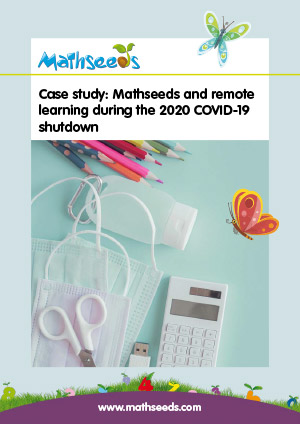Online learning quickly became essential during the COVID-19 school closures, while upending most traditional learning practices. This case study examines how students at one elementary school used Mathseeds to make significant grade progress at school and at home.
Mathseeds Success During the COVID‑19 Shutdown
This remarkable case study shows how one group of students not only maintained, but improved their grade level during the challenging lockdown period using Mathseeds.
Case Study
This case study focuses on a public school for Kindergarten–Fourth Grade in Pennsylvania. In 2019–20, students in Kindergarten and First Grade were the main users of Mathseeds.
The school district provided students with an iPad to encourage them to continue their modified learning program at home. A free Wi-Fi zone was established in the school car park to help students complete their learning tasks.
Kindergarten
Mathseeds Kindergarten lessons are designed to build early mathematical skills. At the beginning of kindergarten, most students have basic number sense, using Mathseeds to build on their fundamental number skills including number recognition, number words, counting, and shapes. As students reach the First grade lessons, they can count forwards and backwards to twenty with confidence and know the number words up to twenty. They have basic addition skills, adding up to ten and doubles to five. Students are familiar with 2D and shapes 3D shapes, along with the concepts of passing time, life cycles, and days of the week.
Lessons Completed
August 2019–April 2020, 85* Kindergarten students completed 4931 Mathseeds lessons. Impressively, these students completed 867 lessons—their highest number—in April 2020 during remote learning.
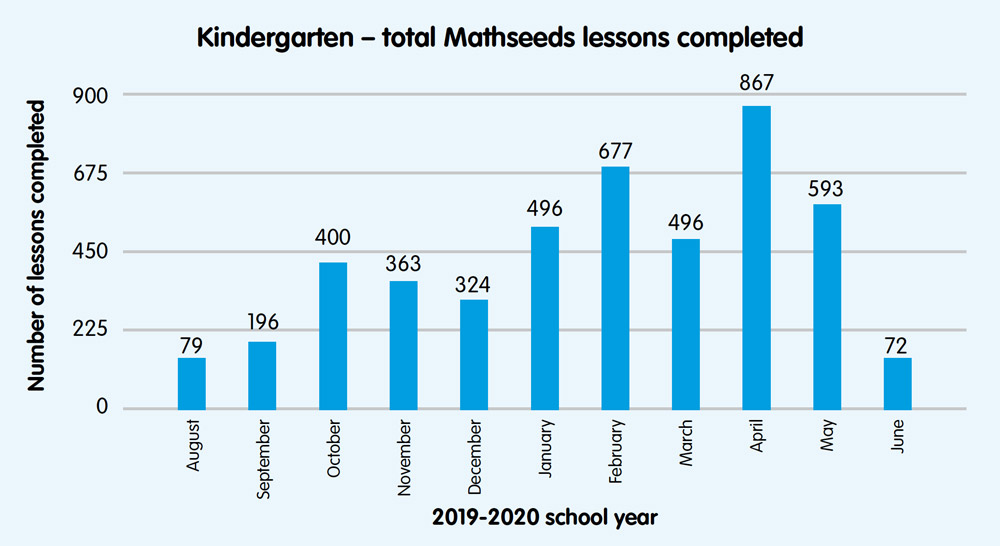
Grade Level Progress
In the 2019–20 school year, Kindergarten students made substantial progress. The table below shows students’ grade level progress as they spent time using Mathseeds.
| Grade level progress range | Number of students | Average minutes per week using Mathseeds |
|---|---|---|
| 2.51–3.0 | 3 | 98 |
| 2.01–2.5 | 3 | 80 |
| 1.51–2.0 | 13 | 56 |
| 1.01–1.5 | 23 | 39 |
| 0.51–1.0 | 27 | 24 |
| 0–0.5 | 16 | 10 |
More than 90% of Kindergarten students started the year at grade level. By the end of the year, more than half of the students were working above grade
| Start of the school year | End of the school year | |
|---|---|---|
| Above grade level | 6 | 44 |
| At grade level | 79 | 41 |
| Below grade level |
On average, Kindergarten students spent 35 minutes per week using Mathseeds and progressed 1.1 grade levels during the 2019–20 school year.
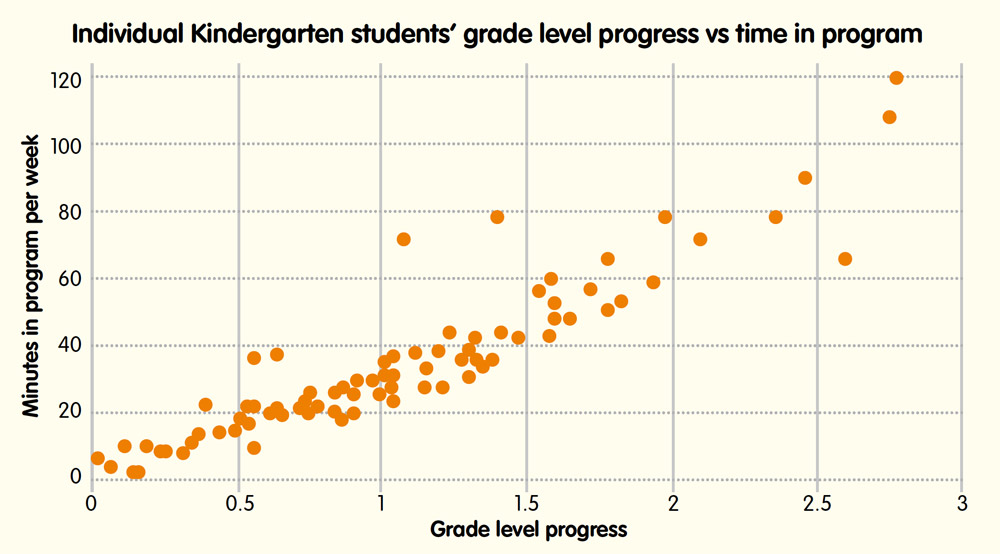
Grade level progress increased with time spent using Mathseeds.
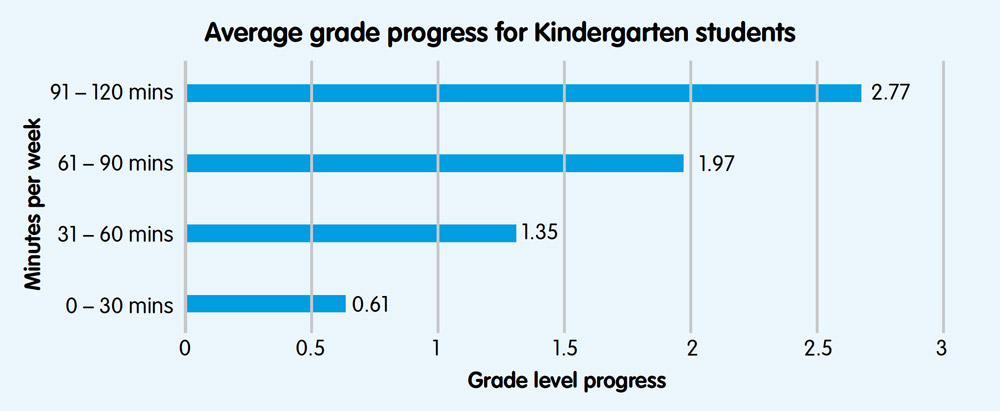
Quizzes
Mathseeds quizzes consolidate student knowledge. On average, the school’s Kindergarten students scored 83% on their End of Map quizzes, with three-quarters scoring 80% or more.
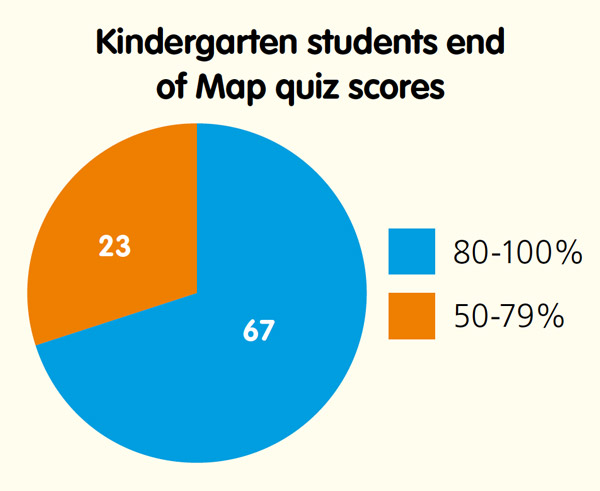
First Grade
First grade lessons build upon the students’ mathematical knowledge. As students’ progress through the First Grade Maps, they learn to count to 100, order numbers, identify money, and investigate fractions, subtraction, early multiplication, division, and volume. Children continue to explore 2D shapes and 3D objects, learn how to tell time, and work with the concept of chance and the likelihood of things happening.
Lessons Completed
During the 2019–20 school year, First Grade students completed 5017 Mathseeds lessons. They took the highest number of lessons (751) in both March and April 2020 during remote learning.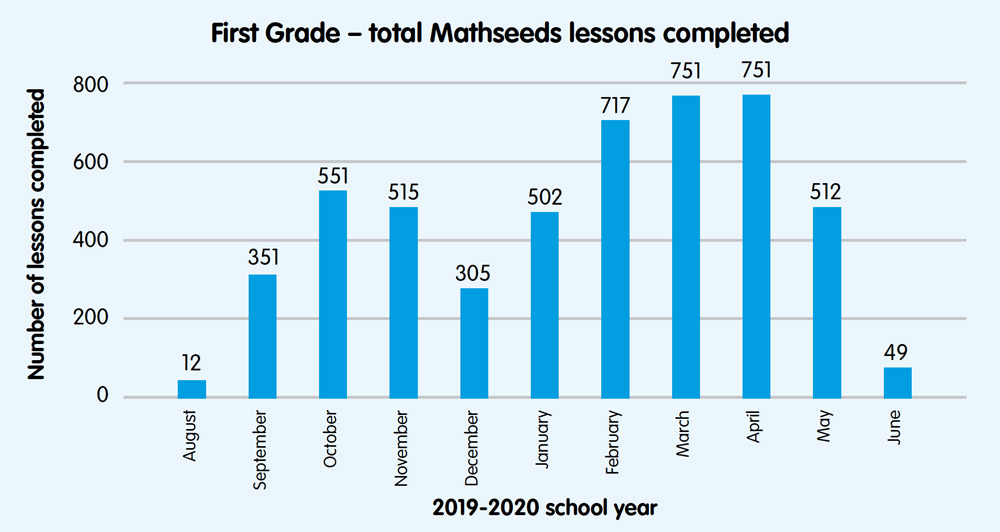
Grade Level Progress
During the 2019–20 school year, 90 First Grade students made significant progress. The table below shows students’ grade level progress and time spent using Mathseeds per week.
| Grade level progress range | Number of students | Average minutes per week using Mathseeds |
|---|---|---|
| 2.51–3.0 | 1 | 90 |
| 2.01–2.5 | 4 | 70 |
| 1.51–2.0 | 12 | 64 |
| 1.01–1.5 | 32 | 46 |
| 0.51–1.0 | 30 | 29 |
| 0–0.5 | 11 | 14 |
Almost 70% of First Grade students started the year below grade level. (Some started working at the very beginning of the Mathseeds program.) However, by the end of the year the situation had reversed: over 75% of students were working at or above grade level.
| Start of the school year | End of the school year | |
|---|---|---|
| Above grade level | 2 | 37 |
| At grade level | 26 | 32 |
| Below grade level | 62 | 21 |
On average, First Grade students spent 40 minutes per week using Mathseeds and progressed 1.1 grade levels during the 2019–20 school year.
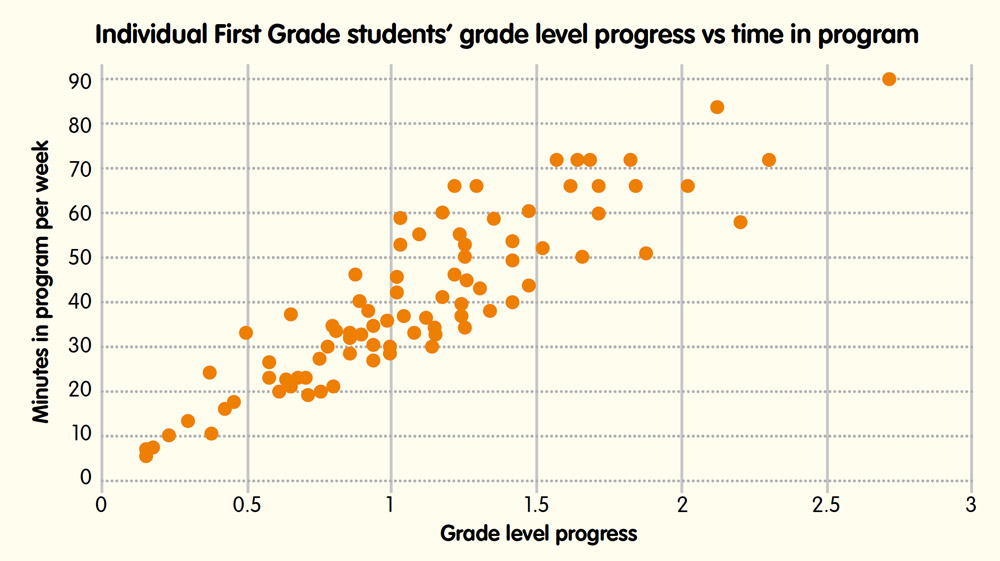
Grade level progress increased with time spent using Mathseeds.
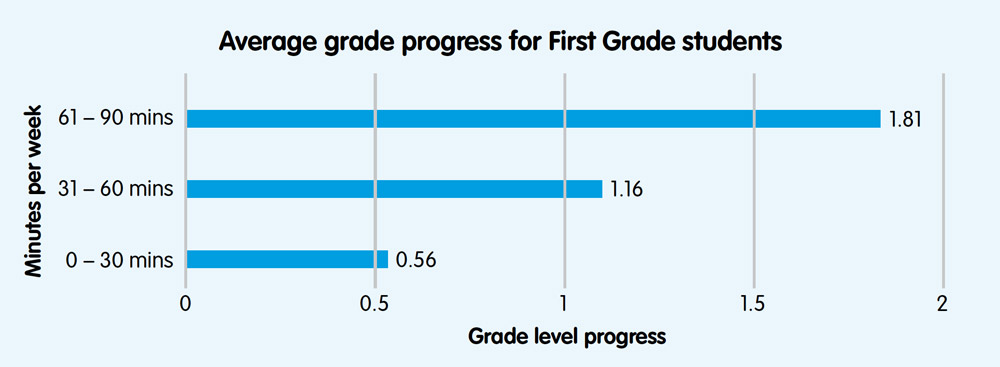
Quizzes
Mathseeds quizzes consolidate student knowledge. On average, the school’s First Grade students scored 86% on their End of Map quizzes, with four out of students five scoring 80% or more.
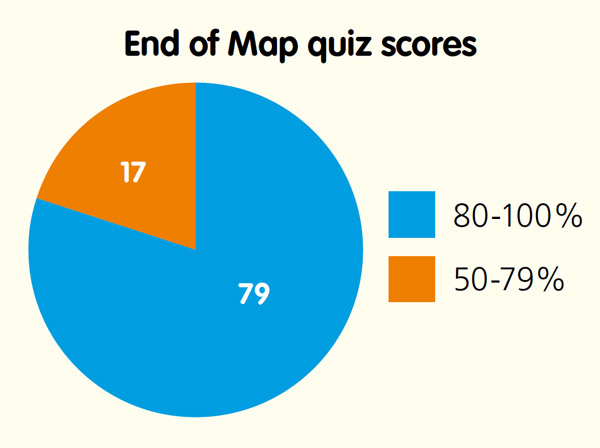
Math + Fun = Mathseeds
The final three months of the 2019–20 school year were challenging. Teachers and students made extraordinary efforts to adapt to remote learning. It was inspiring to see children use Mathseeds to maintain and even extend their grade level learning during this difficult time.
Mathseeds can be used in-class and as a remote learning tool to achieve higher-than-average progress. The program’s carefully sequenced lessons, along with its highly engaging and motivational elements, scaffold learning and support mastery across math domains and standards for students in Kindergarten–Third Grade.
Mathseeds lessons are designed to build students’ math knowledge and skills. Teachers can confidently assign lessons for students to complete independently. Each lesson includes: an animation that explains the concept being taught, interactive activities, and an end-of-lesson quiz to consolidate and assess students’ skills. Teachers can monitor student progress and achievement via the reporting dashboard.
Mathseeds engages students in their learning. The program’s fun motivational elements, such as Golden Acorns, pets and certificates, encourage children to continue working through the program.
We hope to see students (and teachers) using Mathseeds in class and at home in Fall 2020!
Download the full report
Download the full case study in PDF format and see how Mathseeds helped students succeed during the 2020 COVID-19 shutdown.


